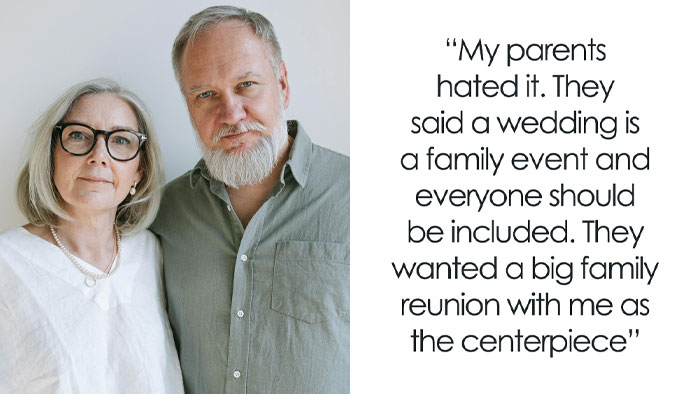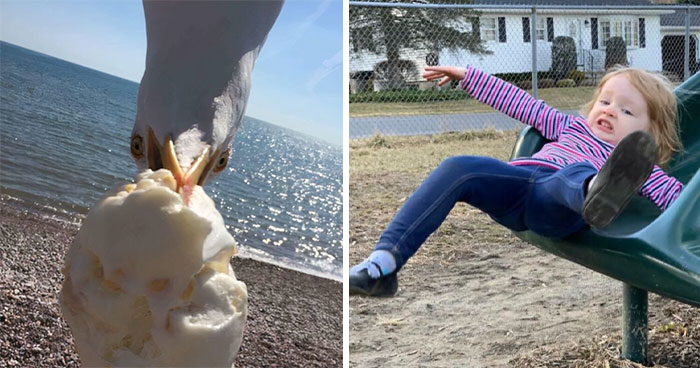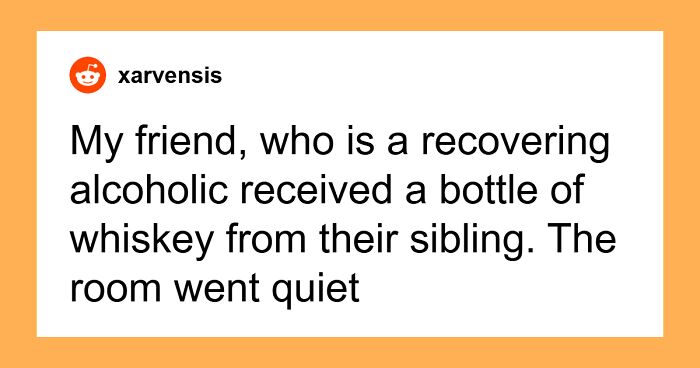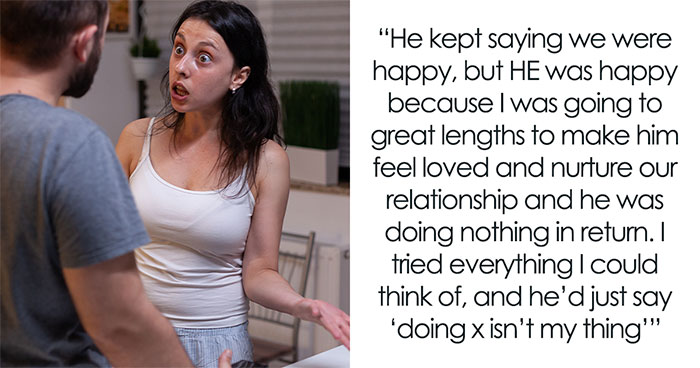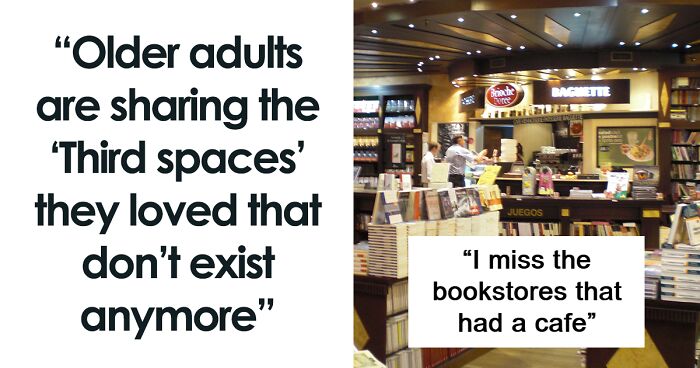
“Capitalism Gone Bad”: 30 People Remember Third Places That Have Disappeared
Interview With ExpertSociologists have noticed that people spend most of their time in one of three places. The first is their home, the second is where they work, and the third is a common area where they socialize. Some examples of the latter include libraries, parks, churches, coffee shops, and community centers, which are very important for human relationships.
However, these third places are disappearing due to factors like digitalization, the cost of living, and the pandemic. To attract more attention to their importance, older adults are sharing their favorite ‘hangout spots’ that should be preserved for the sake of our mental health. Scroll down to find them, and let us know what you think about the topic in the comments below!
While you're at it, don't forget to check out a conversation with internet culture writer Nathan Allebach, who went viral in 2022 after posting a TikTok video on this topic.
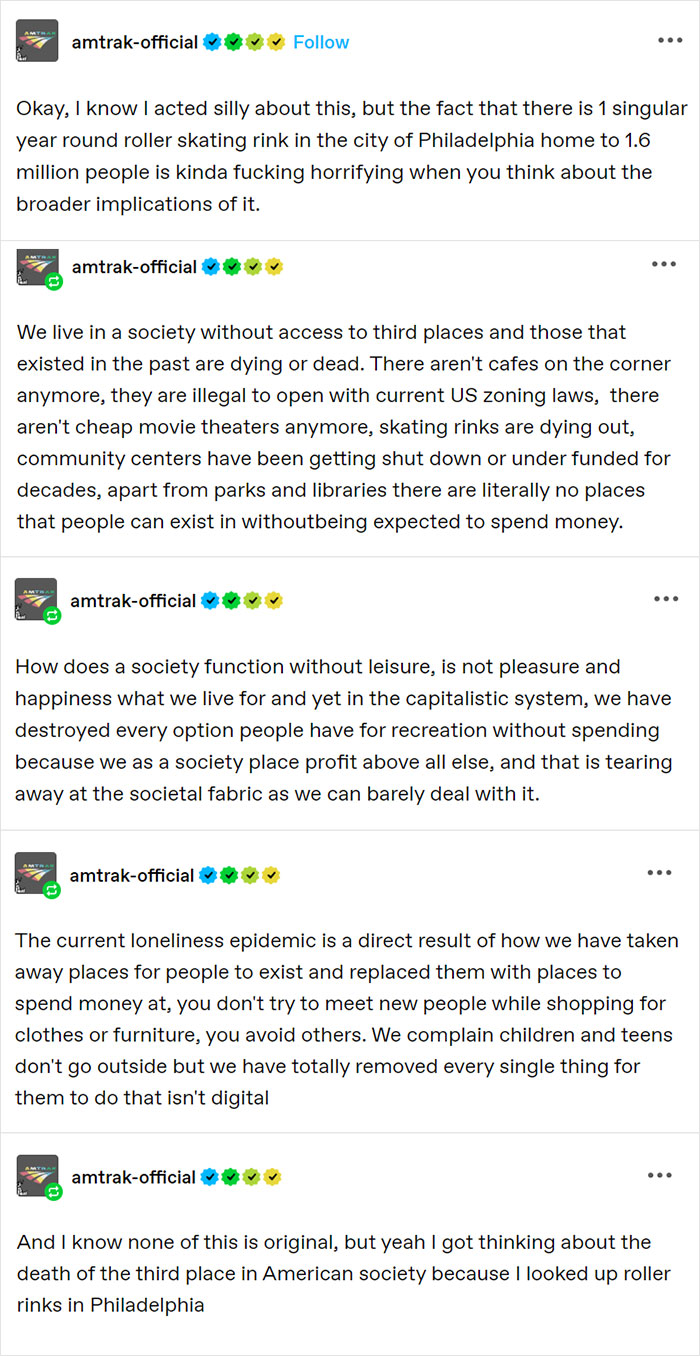
This post may include affiliate links.
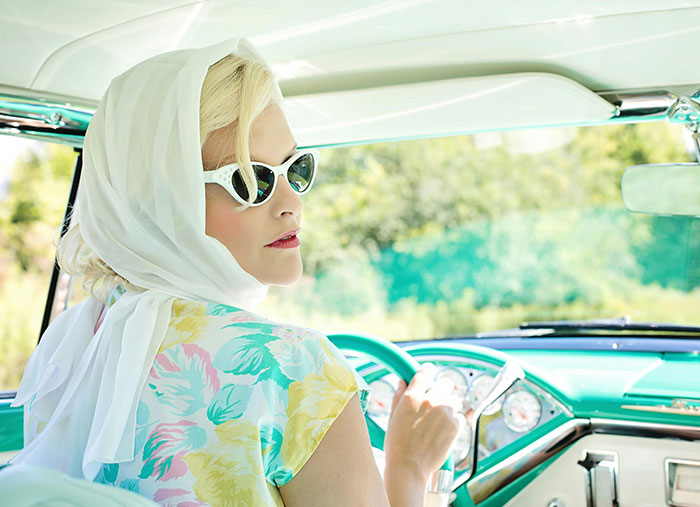 In my neck of the woods, a lot of third places closed because of people behaving badly. Once upon a time, people knew how to behave in groups, obeyed the unwritten social contract, shared common spaces.
"Share the road." with other drivers. Be nice to pedestrians and bicyclists. Wait your turn.
Keep your voice down. Don't blare your music. Share the space, let others enjoy it too.
Y'all can rag on boomers all you want, but we had numerous public spaces, and knew how to behave in them. We cleaned up our own garbage and left the place nice for the next people. "Excuse me" and "Thank you" and "I'm sorry" and "How are you?" and "Nice weather we've been having" were common usage.
There's been an incredible breakdown in the unwritten social contract, leading to the closing a lot of those spaces. People have gotten into my face for reasons I can't comprehend. People barge through a space, bumping into others because pausing to let someone else pass is foreign to them. It's as if being kind to others is showing weakness.
There's little warmth in public places any more. Little eye contact. Kindness hardly exists.. People take and take, but give nothing. People are incredibly loud and self-centered and they are never ever wrong.
The breakdown of the social contract appears to be culminating with Orange Man ....
In my neck of the woods, a lot of third places closed because of people behaving badly. Once upon a time, people knew how to behave in groups, obeyed the unwritten social contract, shared common spaces.
"Share the road." with other drivers. Be nice to pedestrians and bicyclists. Wait your turn.
Keep your voice down. Don't blare your music. Share the space, let others enjoy it too.
Y'all can rag on boomers all you want, but we had numerous public spaces, and knew how to behave in them. We cleaned up our own garbage and left the place nice for the next people. "Excuse me" and "Thank you" and "I'm sorry" and "How are you?" and "Nice weather we've been having" were common usage.
There's been an incredible breakdown in the unwritten social contract, leading to the closing a lot of those spaces. People have gotten into my face for reasons I can't comprehend. People barge through a space, bumping into others because pausing to let someone else pass is foreign to them. It's as if being kind to others is showing weakness.
There's little warmth in public places any more. Little eye contact. Kindness hardly exists.. People take and take, but give nothing. People are incredibly loud and self-centered and they are never ever wrong.
The breakdown of the social contract appears to be culminating with Orange Man ....
This is 100% true. I noticed this happening back in the early 2000s - not so recently as you say. People just have zero respect for public spaces and others around them and haven't for a very long time.
 Librarian here. Unless you live in one of the areas where libraries are suddenly hated and are having their funding cut to shreds, you can go there. Please come in. It’s free and warm and there are free books and computers and you only have to pay if you return a book late or want to print something.
Librarian here. Unless you live in one of the areas where libraries are suddenly hated and are having their funding cut to shreds, you can go there. Please come in. It’s free and warm and there are free books and computers and you only have to pay if you return a book late or want to print something.
I used to love the library. Sadly, these days it is just a place that the homeless go to get warm or cool. The children's section is behind a locked door to keep out the creepy people. You have to ask the librarian to buzz you in.
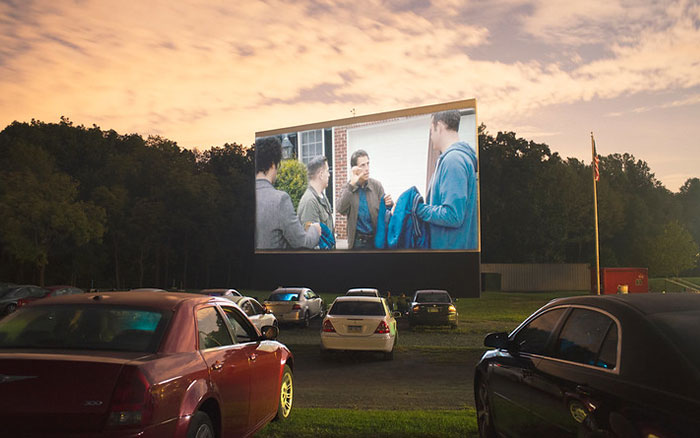 Drive-In Movie Theater!!! With pajamas on as a kid and being able to play on the monkey bars there while mom got snacks at the snack bar!!!
Drive-In Movie Theater!!! With pajamas on as a kid and being able to play on the monkey bars there while mom got snacks at the snack bar!!!
Used to be popular in Australia. I remember going to them during the 60s and 70s
One of the earliest examples of third places are tea houses tracing back to ancient Chinese communities and the Jin dynasty, around 265–316 AD. At first, they were considered a symbol of status where people could frivolously spend their money on tea in public.
Later, they evolved into meeting places where local people celebrated and had business and friendly meetings daily. These were the hubs where they shared their creative ideas and generated innovations.
Flash forward to the 17th century, and the owners of coffee houses were severely punished by Sultan Murad IV of the Ottoman Empire and King Charles II of England because they felt threatened by the ‘radical ideas’ that were shared in these places.
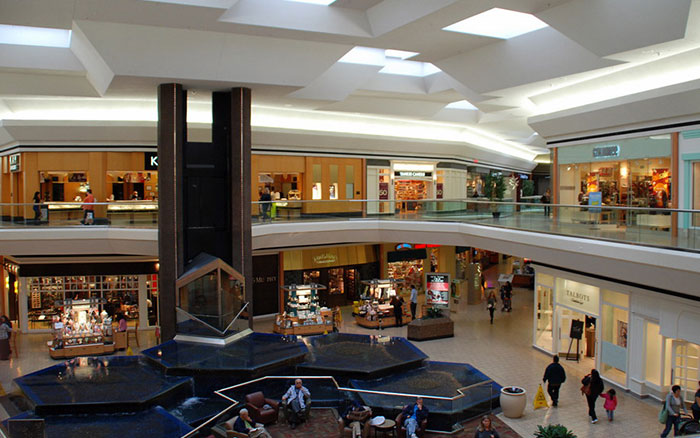 If you lived through the 80's and 90's, the mall was very much a public plaza for seeing your friends, group dates, or just stretching your legs.
Now, did we still spend money a lot of the time? Sure. If 11 year old me had money in my pocket, I was buying a snack at the food court, maybe some Magic cards or a CD.
But probably about half the trips I went to the mall from ages 11-14, I bought nothing. And my friends with less money didn't feel out of place, because we were there to walk around, talk, and play cards.
If you lived through the 80's and 90's, the mall was very much a public plaza for seeing your friends, group dates, or just stretching your legs.
Now, did we still spend money a lot of the time? Sure. If 11 year old me had money in my pocket, I was buying a snack at the food court, maybe some Magic cards or a CD.
But probably about half the trips I went to the mall from ages 11-14, I bought nothing. And my friends with less money didn't feel out of place, because we were there to walk around, talk, and play cards.
First people stopped going outside to socialize. Then, they even stopped going inside to socialize.
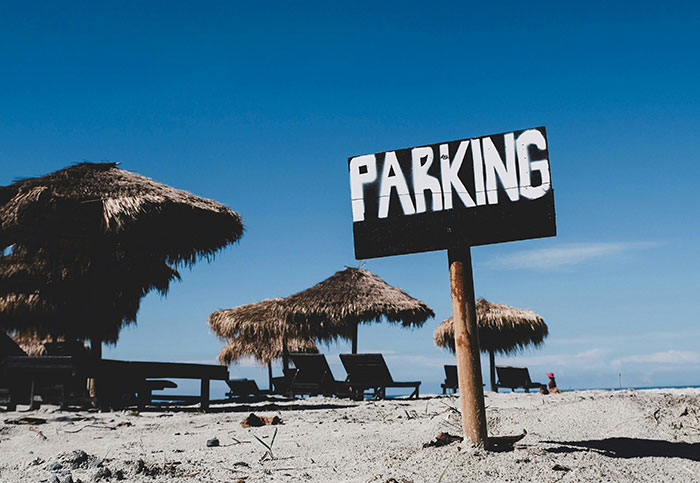 It is the same in my country Malaysia as well. You cant even enter some parks without paying an entrance fee and you're not going to be able to get there without a car. A public beach in my state is going to start development into another private tourist hotel any day now and we won't even be able to see the sunset without paying ridiculous amounts of money as parking fee. I wish we just had somewhere to chill and meet people for free.
It is the same in my country Malaysia as well. You cant even enter some parks without paying an entrance fee and you're not going to be able to get there without a car. A public beach in my state is going to start development into another private tourist hotel any day now and we won't even be able to see the sunset without paying ridiculous amounts of money as parking fee. I wish we just had somewhere to chill and meet people for free.
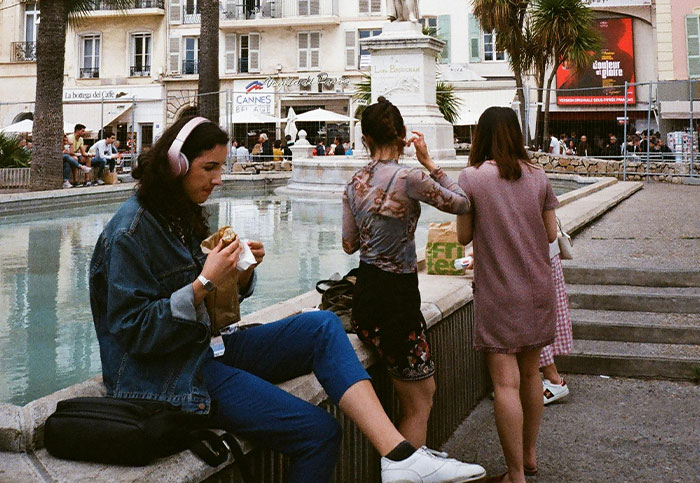 My neighborhood has this tiny plaza located off a street full of local shops and restaurants. Its like 60' by 80', its basically just an empty lot between two buildings that's been paved with stones and has a few benches and a fountain.
Every single evening that the weather is even remotely tolerable its packed with people. Parents with kids in strollers. Teenagers with their bikes chilling after school. Friends hanging out and chatting over pastries from the bakery next door. Local musicians playing live music in the summer. Its this tiny little island of space where people can just...exist, and say hi to each other, and enjoy being outside and around other people. If you build these spaces *people will come*. It doesn't take much. It doesn't need to cost a lot of money. You just need to carve out some space people lounge in, and give them local businesses they can choose to patronize without requiring them to spend money. And crucially *they have to be able to reach it without driving a car*.
My neighborhood has this tiny plaza located off a street full of local shops and restaurants. Its like 60' by 80', its basically just an empty lot between two buildings that's been paved with stones and has a few benches and a fountain.
Every single evening that the weather is even remotely tolerable its packed with people. Parents with kids in strollers. Teenagers with their bikes chilling after school. Friends hanging out and chatting over pastries from the bakery next door. Local musicians playing live music in the summer. Its this tiny little island of space where people can just...exist, and say hi to each other, and enjoy being outside and around other people. If you build these spaces *people will come*. It doesn't take much. It doesn't need to cost a lot of money. You just need to carve out some space people lounge in, and give them local businesses they can choose to patronize without requiring them to spend money. And crucially *they have to be able to reach it without driving a car*.
The term third place was popularized by urban sociologist Raymond Oldenberg, who described it as “public places on neutral ground where people can gather and interact. In contrast to first places (home) and second places (work), Third Places allow people to put aside their concerns and simply enjoy the company and conversation around them.”
Writer, social media director, and brand strategist Nathan Allebach, who went viral in 2022 after posting a TikTok video on this topic, said to Bored Panda, "Third spaces have traditionally been the low-to-no-cost entry places where communities gathered. They could be public squares where there might be a fountain, statue, or bulletin board; they could be libraries, cafes, barber shops, pubs, music venues, skate parks, or any other place with a magnetic pull for people to hang out for more than just a quick purchase."
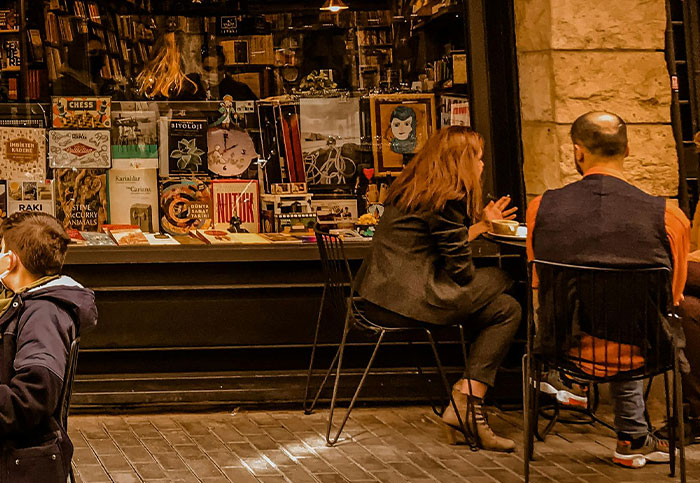 I miss the bookstores that had a cafe. A place to explore and find new authors, relax and enjoy a coffee with other literary minded people. Talk with staff about what was new and exciting. All gone now.
I miss the bookstores that had a cafe. A place to explore and find new authors, relax and enjoy a coffee with other literary minded people. Talk with staff about what was new and exciting. All gone now.
Dr. Narae Lee, a scholar at Pennsylvania State University, has researched the impact of these locations and proposes that “one of the important features of 'third places' is social contact, either directly or indirectly,” Lee says. “In third places, you can enjoy direct social interaction with other people by chatting and enjoying activities with them.”
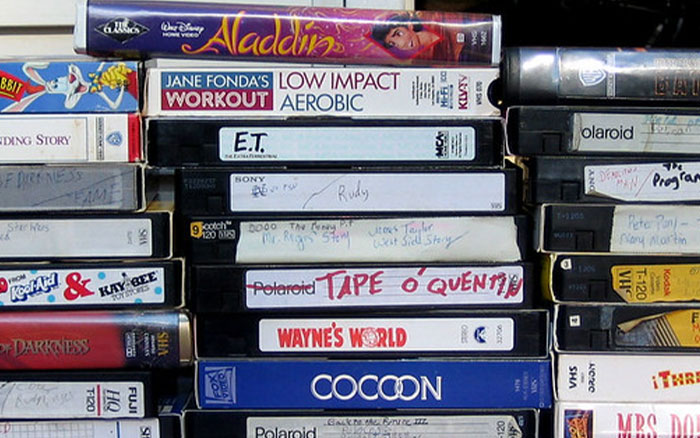 I miss them so much. This may sound gross, but I miss the smell of the VHSs and DVDs. I miss going in either with a plan or without one and simply browsing to find a random movie to watch. I miss picking out candy and pulling out my Blockbuster card. It was a highlight of my week, especially each weekend.
I miss them so much. This may sound gross, but I miss the smell of the VHSs and DVDs. I miss going in either with a plan or without one and simply browsing to find a random movie to watch. I miss picking out candy and pulling out my Blockbuster card. It was a highlight of my week, especially each weekend.
Visiting "the last blockbuster" (Bend Oregon) recently gave me the most amazing retro fueled nostalgic "high". I was grinning ear to ear all day.
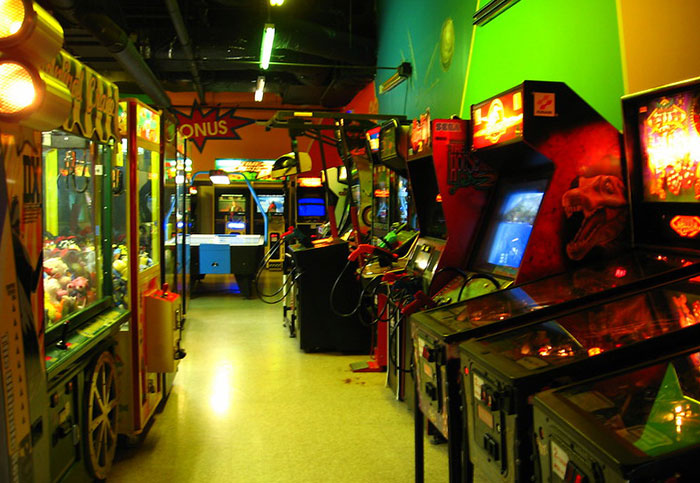 "Why aren't arcades a thing anymore?" I wonder as I pre-order another game on Steam. The door bell rings. Amazon delivery. "We used to have so much fun at malls. I wonder why they all closed down. Probably a conspiracy to remove all third places..." The phrase is familiar, something I've been seeing a lot online, and I spend a lot of time online. After all that's where all my friends are. Who would want to go outside and meet people? It's 2024. I play my RPGs on Discord now. Makes it so much easier than having to go to a cafe or someone else's home. Cafes are all closing down now anyway, you wouldn't find one if you wanted to. I don't want to, obviously, but hypothetically.
"Why aren't arcades a thing anymore?" I wonder as I pre-order another game on Steam. The door bell rings. Amazon delivery. "We used to have so much fun at malls. I wonder why they all closed down. Probably a conspiracy to remove all third places..." The phrase is familiar, something I've been seeing a lot online, and I spend a lot of time online. After all that's where all my friends are. Who would want to go outside and meet people? It's 2024. I play my RPGs on Discord now. Makes it so much easier than having to go to a cafe or someone else's home. Cafes are all closing down now anyway, you wouldn't find one if you wanted to. I don't want to, obviously, but hypothetically.
They are. We have a couple here in Portland that also serve beer and wine.
They help us form our individual and collective identities beyond our home or work. In a sense, they are a communal social hub that is becoming more important to our psychological well-being while living in a society where loneliness is increasing. Even if you aren’t actively participating in socializing, just showing up can do wonders.
“It’s crucial for people to escape from a sense of loneliness and build a sense of community. Some people go to third places to be surrounded by other people, watch them, and rest while just enjoying the ambiance and white noise,” Lee says.
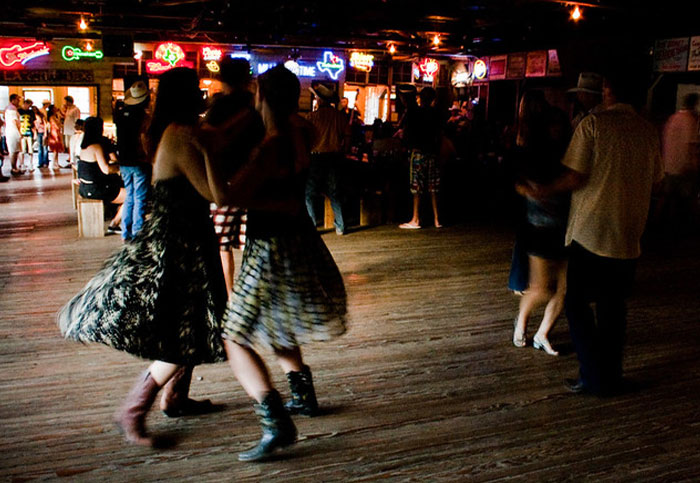 Dance halls, and dancing in general used to be massively popular. If you were in an American town of more than 1000 or so people you could count on at least one social dance a week, often more.
Dance halls, and dancing in general used to be massively popular. If you were in an American town of more than 1000 or so people you could count on at least one social dance a week, often more.
There are tons of dances in the city I live in, both partner and free-form dances. Of course, they cost $, but that's kind of to be expected with the space rental.
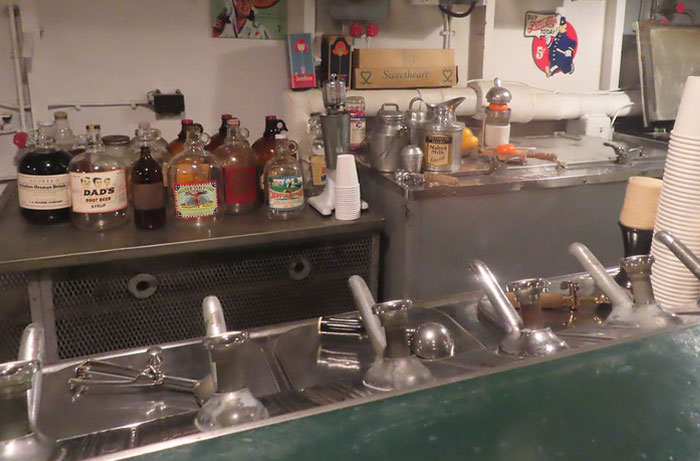 Soda fountains.
I recently read a story about a girl in the 1930s who enjoyed a strawberry soda at a soda fountain for a nickel. I looked it up, and minimum wage in 1930 was 25 cents an hour. So at minimum, someone would need to work for twelve minutes to afford one strawberry soda at a soda fountain.
Counterpoint, current federal minimum wage is $7.25. Priced proportionaly, that soda should cost $1.25. In my area, it should cost $3.20 based on state minimum wage. But I can't even get a basic black coffee for that price from the local coffee shops. A bottled 20 oz soda costs about $3 from the local liquor store, but I'm sure it's not as good as the fresh soda served from the fountain. And the store is designed for me to grab what I want out of the cooler, pay, and leave.
So it's not just that there's no places we can't be at and not spend money. It's that the money we're expected to spend is out of proportion to, say, what some mid-century teens were expected to spend while hanging out at the local soda fountain.
Soda fountains.
I recently read a story about a girl in the 1930s who enjoyed a strawberry soda at a soda fountain for a nickel. I looked it up, and minimum wage in 1930 was 25 cents an hour. So at minimum, someone would need to work for twelve minutes to afford one strawberry soda at a soda fountain.
Counterpoint, current federal minimum wage is $7.25. Priced proportionaly, that soda should cost $1.25. In my area, it should cost $3.20 based on state minimum wage. But I can't even get a basic black coffee for that price from the local coffee shops. A bottled 20 oz soda costs about $3 from the local liquor store, but I'm sure it's not as good as the fresh soda served from the fountain. And the store is designed for me to grab what I want out of the cooler, pay, and leave.
So it's not just that there's no places we can't be at and not spend money. It's that the money we're expected to spend is out of proportion to, say, what some mid-century teens were expected to spend while hanging out at the local soda fountain.
I love a fountain drink every now and again, especially one from McDonald's. Their stores keep the syrup cold or something like that, and boy do they give the best "burn" going down!
My hometown closed its only remaining movie theater during the pandemic. at that point, the ***ONLY*** form of entertainment (Excluding bars and restaurants) is a concert venue and a theater venue. in a City with a population of 205,918. This is the second biggest city in New England, after Boston. And they wonder why the only thing kids do is play videogames and do d***s.
To be honest, as a teen in the 1970's doing LSD and mescaline were more entertaining than most activities.
In the 1950s, these social hubs resided in the local diner, the library, the bowling hall, and hair salons. The 1990s and the emergence of the iconic TV show Friends again popularized coffee shops where people could come in to meet up with others, catch up about their day, and dissociate from their daily routines.
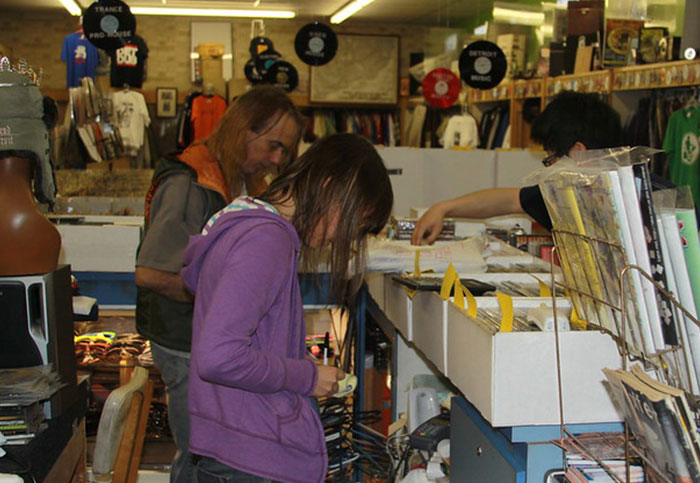 Music (the media, not instruments) stores, especially the ones that let you sample music!
Bookstores aren't gone but there are far less of them.
Music (the media, not instruments) stores, especially the ones that let you sample music!
Bookstores aren't gone but there are far less of them.
"We complain children and teens don't go outside but we have totslly removed every single thing for them to do that isn't digital" is probably the pinnacle of why i struggle with maintaining a healthy living routine, along with the fact that money gets tighter every month.
It's because a small % of the population have ruined and continue to ruin things for the rest of us. Build a park? Graffiti, vandalism and d**g addicts. Turn a street into a pedestrian walkway? Every store gets robbed and they close. It's just not worth spending the money on something that won't last a year at most. It's sad but true.
I always think about how if I woke tomorrow as a billionaire, I'd like to just open a big a*s arcade or something like it that operates at a loss just because it'd be cool to do. I have the same aspirations as a 5 year old.
You wouldn't find me if I woke up a billionaire. I'd move to a small town in the middle of nowhere and clean out every animal shelter in a 20-mile radius on my way there.
Seeing a huge opportunity there, Howard Schultz, former CEO of Starbucks, changed the layout of their store to include warm colors, coffee tones, and comfortable seating. He was aware of the need for community and described their new design as “intended from day one to build a Third Place between home and work... at a time in America when people are hungry for human connection.”
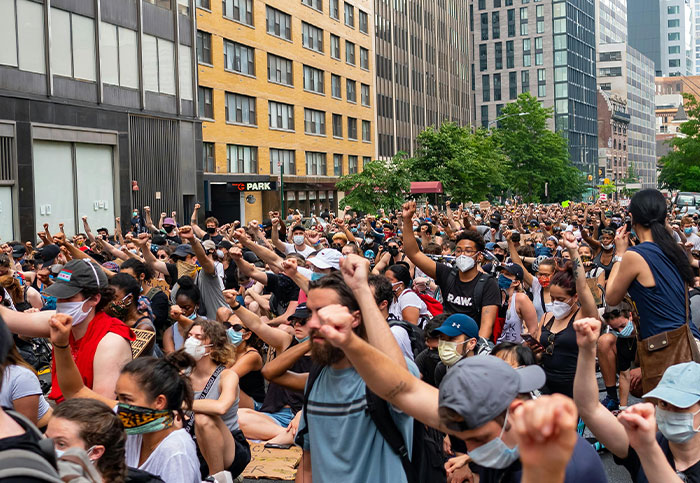 And what are you going to do? Are you going to advocate for third places? Are you going to attend municipal council meetings? Will you sign petitions? Protest? Are you going to contact your municipality and tell them?
Because if you do things will change. Third spaces will come back.
And what are you going to do? Are you going to advocate for third places? Are you going to attend municipal council meetings? Will you sign petitions? Protest? Are you going to contact your municipality and tell them?
Because if you do things will change. Third spaces will come back.
Not in my town. It's all about creating commerce and housing (in that order). So far, new business development consists of fast-food restaurants and car washes. Nothing is done for the quality of life.
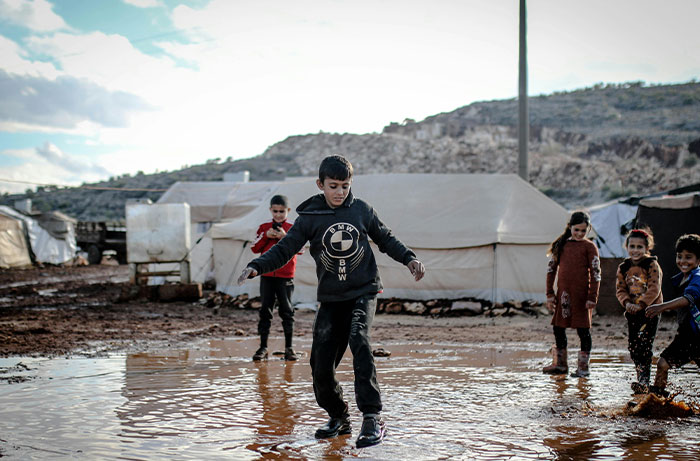 When I was little he had a half track as we called it that had been built in the creek by multiple cohorts of children. The first group of kids started it sometime in the 5th or 6th grade, around high school or so they can get to better places, so they showed that place to the Friends of their siblings and the younger kids. Eventually those kids got older and showed the place to their younger siblings and cousins and so on.
Heading out in the middle of nowhere where it couldn't be seen from the road, and could only be found by waiting across a creek was a track made in the dirt for bikes by and for kids.
By the time my age group was going there regularly, we had some banked turns, a quarter pipe to drop into the track, and me and about 15 other kids all worked to make a mogul section in the straightaway. Any given day you would go there there'd be at least another 10 kids. One or two of which were there for the first time and you got to meet someone new and show them your favorite part of the track and spread the history of this place.
No of course there was eventually a half pipe and a quarter pipe made out of dirt, so a bunch of us were eating s**t and just absolutely wrecking ourselves on this course. This eventually led to the adults figuring out where it was.
The city came and bulldozed the course. So we started rebuilding it. They came and bulldozed it again and then paved over it with cement. Flat cement with benches at the end of it.
So we started bringing our skateboards and rollerblades and using the benches to practice our grinds. So the city put in studs at the edge of everything so that we couldn't do that anymore either.
Needless to say it stopped being a good hangout place for kids, most of those kids I would see three times a week I never saw again in my life. The ones that I did were hooked on d***s because there was literally nothing else to do but sit in our rooms and get high.
We're hell bent on making sure no one has anything to do and then complaining when people aren't doing things.
When I was little he had a half track as we called it that had been built in the creek by multiple cohorts of children. The first group of kids started it sometime in the 5th or 6th grade, around high school or so they can get to better places, so they showed that place to the Friends of their siblings and the younger kids. Eventually those kids got older and showed the place to their younger siblings and cousins and so on.
Heading out in the middle of nowhere where it couldn't be seen from the road, and could only be found by waiting across a creek was a track made in the dirt for bikes by and for kids.
By the time my age group was going there regularly, we had some banked turns, a quarter pipe to drop into the track, and me and about 15 other kids all worked to make a mogul section in the straightaway. Any given day you would go there there'd be at least another 10 kids. One or two of which were there for the first time and you got to meet someone new and show them your favorite part of the track and spread the history of this place.
No of course there was eventually a half pipe and a quarter pipe made out of dirt, so a bunch of us were eating s**t and just absolutely wrecking ourselves on this course. This eventually led to the adults figuring out where it was.
The city came and bulldozed the course. So we started rebuilding it. They came and bulldozed it again and then paved over it with cement. Flat cement with benches at the end of it.
So we started bringing our skateboards and rollerblades and using the benches to practice our grinds. So the city put in studs at the edge of everything so that we couldn't do that anymore either.
Needless to say it stopped being a good hangout place for kids, most of those kids I would see three times a week I never saw again in my life. The ones that I did were hooked on d***s because there was literally nothing else to do but sit in our rooms and get high.
We're hell bent on making sure no one has anything to do and then complaining when people aren't doing things.
Not to take away from this heartwarming (and breaking) story about skateboarding that I never thought about before, but why on earth have they used a picture of kids in a refugee camp playing in a mud puddle? Unless they're underwater, not a skateboard in sight.
The dog park is my third space. It turned from me going there to watch dogs alone to help with mental health, to now I have a dog of my own and watching her play with all her friends brings me such joy.
I had a dog who loved people but could care less about other dogs. I am a person who loves dogs but could care less about other people. Dog parks were not for us, we found...
However, with the introduction of the internet and Wi-Fi, these places started to lose the community aspect. Now many people come to them, put in their earbuds, keep their heads down, and focus on their electronic devices. Coffee shops or more specifically, Starbucks, are embracing it and changing their layouts once again. From previous inviting and communal spaces, locations have reduced the number of seats and introduced uncomfortable furniture, and blank walls, encouraging people to leave promptly.
I think the analogies fall flat, but I agree with the sentiment. ESPECIALLY with children. I feel like when I grew up the world was much more friendly to me as a child. Fast food places had play areas, we had cool places like FunScape, Disney Quest, Discovery Zone. Theaters had massive arcade sections (some still do). All these places just do not exist anymore for kids. Their bound to their houses. I mean sure they could go outside but some places are just endless suburb streets of private property. No woods, no rivers, no forts to build. Kids need their own place to go.
None of this exists in France outside the big cities. Playgrounds (aire des jeux) are for toddlers and have one or two things to play on, but it's not designed for the over 7 year olds. In the US, playgrounds are fairly large, designed for ages 1-12 year olds, and had tons of equipment. Usually they were in proximity to a primary school, so you'd bring your kids to your local playground and get to meet other families that go to that school. Quite often, after school, we parents would let the kids play while we chatted. Especially in summer, the ice-cream truck would make a stop or two during the day. This just doesn't exist in France, which is a shame.
I feel this a lot. I live in an eastern european city, close to a million people, and i often don't wanna go home after uni cuz it's boring and lonely, but there's quite literally nothing for me to do. I end up wandering city streets buying myself small things like pressed leaf tea and coffee and candy bars just to feel something, just to feel like I've got something to do. Its kinda sad.
I think it’s also us who changed, because I know around here if you look for it there’s always stuff going on somewhere: free concerts, free theatre, free exhibitions, parties, book meet-ups and so on. But I rarely find the energy to look for it, or it gets buried in the endless stream of information.
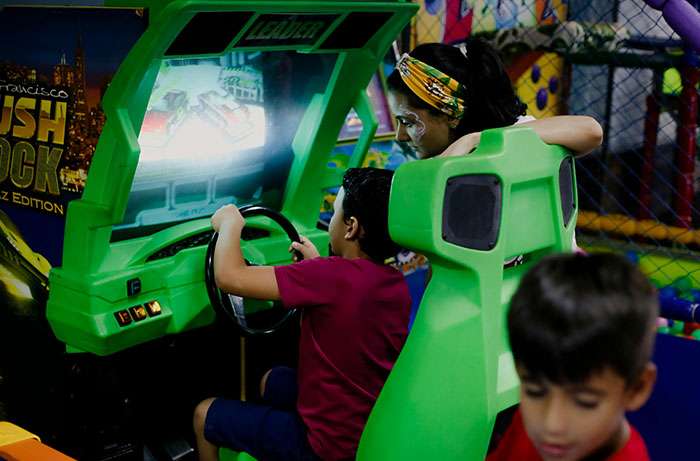 The mall is the biggest one that hardly exist today in the form like they did prior to the 00s.
Things I used to do as a kid in the 90s and 00s that I don't do anymore is things like:
The arcade, stand alone ones were already dying when I was a kid but they did have them in malls, which also are dying/dead now. I don't know of any Malls today that have arcade in them like they were in my youth, a Dave and Busters is the closest thing but not the same.
Bowling, way too expensive today compared to when I was a kid can you can do everything for like 2 dollars a game + shoes. Today you're going to be spending 20 bucks for the same, unless you want to show up on a weekday morning to get 5 dollar games.
Movies, exactly the same as bowling. WAY too expensive. It also has the double whammy of streaming basically killing the urge to watch a movie.
Browsing Blockbuster. Netflix killed that off, but it was already on the way out in the 00s. It was one of the places where I was like an 8 year old befriending the high schooler employee about films and games and it not being some creepy ass/sus friendship. A blockbuster employee taught me how to burn games and dvds and how to modify a PS2 to make use of those burnt discs.
Gamestop/ Best Buy. Midnight game releases were events that people did, the death of physical media killed that in the mid 10s.
The mall is the biggest one that hardly exist today in the form like they did prior to the 00s.
Things I used to do as a kid in the 90s and 00s that I don't do anymore is things like:
The arcade, stand alone ones were already dying when I was a kid but they did have them in malls, which also are dying/dead now. I don't know of any Malls today that have arcade in them like they were in my youth, a Dave and Busters is the closest thing but not the same.
Bowling, way too expensive today compared to when I was a kid can you can do everything for like 2 dollars a game + shoes. Today you're going to be spending 20 bucks for the same, unless you want to show up on a weekday morning to get 5 dollar games.
Movies, exactly the same as bowling. WAY too expensive. It also has the double whammy of streaming basically killing the urge to watch a movie.
Browsing Blockbuster. Netflix killed that off, but it was already on the way out in the 00s. It was one of the places where I was like an 8 year old befriending the high schooler employee about films and games and it not being some creepy ass/sus friendship. A blockbuster employee taught me how to burn games and dvds and how to modify a PS2 to make use of those burnt discs.
Gamestop/ Best Buy. Midnight game releases were events that people did, the death of physical media killed that in the mid 10s.
Entertainment places. We never had them in Sweden, but I found one in Italy with rollerskating, skating, bowling, arcades, shuffleboard, you name it. It was awesome, just like being in Karate kid 1!
Lockdown due to the COVID-19 pandemic eliminated even more third places. Gyms, bars, restaurants, and libraries were forced to pause their operations, which led some of them to close down permanently.
Allebach points out another reason why these locations are disappearing, and that is the hardly walkable town infrastructure. "Prior to WWII, every small town and big city alike was built to be walkable because walking was people’s primary means of transportation. You needed to get to the local corner store, bar, butcher, blacksmith, and so on within a reasonable distance.
Since WWII and the mass production of motor vehicles, countries have begun redesigning their infrastructure toward car dependency. Roads slowly replaced train and trolley lines, and housing was slowly built far away from urban centers."
 In my literature class we had a poem about front porches, and discussed their impact on the community as places to greet friends and neighbors, hang out and talked about how modern houses have pretty well eliminated this in many places.
Discussed so much evidence that society has shifted dramatically into a less face to face, friendly place. Much less community. I barely know my neighbors, and most of my classmates said the same.
In my literature class we had a poem about front porches, and discussed their impact on the community as places to greet friends and neighbors, hang out and talked about how modern houses have pretty well eliminated this in many places.
Discussed so much evidence that society has shifted dramatically into a less face to face, friendly place. Much less community. I barely know my neighbors, and most of my classmates said the same.
As central air in home (air conditioning) became more mainstream, "sitting on porches" became passe for most people.
"There's a lot more to this history, obviously," he continues. "But now, decades later, we have a development pattern that requires a car to get anywhere, making third places harder to sustain financially. That, coupled with the last 20 years of technology, via the internet, social media, smartphones, streaming, and video games, people are increasingly atomized. It’s more comfortable and easy to stay home and consume media, rather than drive 20 minutes to your nearest park or downtown."
For kids/teens, the woods. I spent so much time wandering the woods behind my house when I was a kid and going to kegger parties as a teen, and all those woods are gone now. It's so upsetting that there's so little nature left and that kids today don't get to have those experiences.
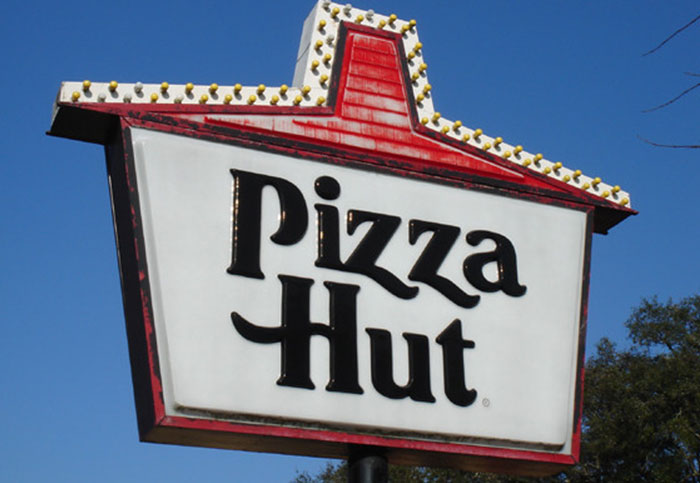 I worked at a Pizza Hut in 1990 - 91, and that restaurant still had a booming dine-in business. Fast forward 15 or 20 tears later, that branch closed and reopened as delivery-only operation about 2 blocks away. Around 3 or 4 years ago my wife and I, feeling nostalgic, took our kids to a different area Pizza Hut that still had a dining area, and at around dinner time on a weekend (can't recall if it was Friday or Saturday) it was a damn ghost town. Two other tables being used, maybe. And they still had the island for the salad bar, but it was all closed down, at least on that night. Pizza was pretty good, but the experience otherwise was just depressing.
I worked at a Pizza Hut in 1990 - 91, and that restaurant still had a booming dine-in business. Fast forward 15 or 20 tears later, that branch closed and reopened as delivery-only operation about 2 blocks away. Around 3 or 4 years ago my wife and I, feeling nostalgic, took our kids to a different area Pizza Hut that still had a dining area, and at around dinner time on a weekend (can't recall if it was Friday or Saturday) it was a damn ghost town. Two other tables being used, maybe. And they still had the island for the salad bar, but it was all closed down, at least on that night. Pizza was pretty good, but the experience otherwise was just depressing.
Pizza hut yuck. And their stupid slogan.... I have news EVERYBODY out pizzas the hut even frozen pizza.
Something that can help preserve these places, according to him, is changing zoning and parking laws. "The problem is that the vast majority of suburbs, small towns, and cities alike have adopted highly restrictive zoning and parking laws over time that make walkable housing de facto illegal to build. On most land in most towns, you can’t even build a duplex without going through months of working with the local zoning board.
Fundamentally, our zoning and parking laws have to change if we want our development pattern to change. A library, cafe, or barbershop is much more likely to not only survive financially but thrive as a place to spend time when it’s located in an active downtown rather than a dead suburb."
He concludes, "When we legalize different styles of development, we can see how different people would choose to live, rather than the current status quo, which creates an artificial scarcity of walkable communities, making most of them unaffordable for most people."
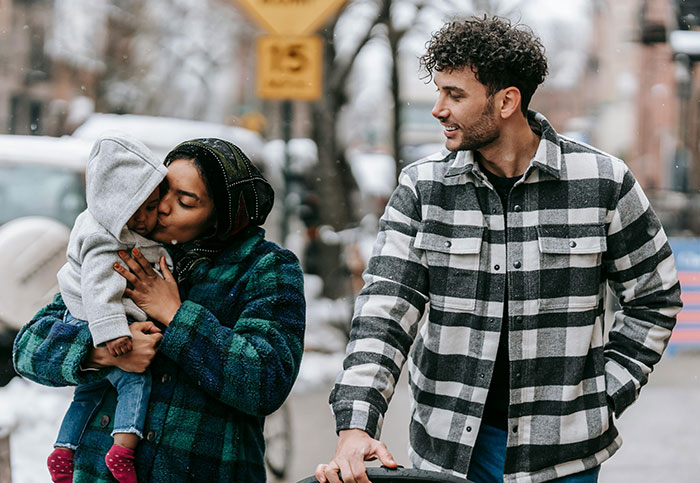 I'm talking about the US in specific, but to fix the death of third places you must first fix the death of walkability and bikeability.
If any kind of social activity for leisure requires the ownership of a multi-thousand dollar machine that needs constant fuel, maintenance, and insurance premiums, then yes you've essentially locked out *a lot* of people from accessing third places. Public transport is garbage in 99% of places to the point that it simply makes it not worth it.
And this isn't just a case of "oh yeah let's retrofit sidewalks everywhere". People live *too f*****g far apart*. There are likely millions of suburban developments in the country that are perhaps an hour's walk - but a mere 10 minute drive - from anything that could be construed as a central community area.
This in itself does something very damaging to our psyche in that our social interactions become atomized and bookended with "I must leave at this time to get here at this time to have this amount of social time doing X and then leave at this time to arrive home at this time". Nothing flows into each other anymore. Interactions, meetings, and conversations aren't organic.
Communities in the US are way, *way* too dispersed for their own good, and as such are way too reliant on cars for basically f*****g everything. Third places cannot thrive in this context no matter how much conscious effort we put into it. Proximity, and critical mass of numbers, are huge factors in the success of third places.
I'm talking about the US in specific, but to fix the death of third places you must first fix the death of walkability and bikeability.
If any kind of social activity for leisure requires the ownership of a multi-thousand dollar machine that needs constant fuel, maintenance, and insurance premiums, then yes you've essentially locked out *a lot* of people from accessing third places. Public transport is garbage in 99% of places to the point that it simply makes it not worth it.
And this isn't just a case of "oh yeah let's retrofit sidewalks everywhere". People live *too f*****g far apart*. There are likely millions of suburban developments in the country that are perhaps an hour's walk - but a mere 10 minute drive - from anything that could be construed as a central community area.
This in itself does something very damaging to our psyche in that our social interactions become atomized and bookended with "I must leave at this time to get here at this time to have this amount of social time doing X and then leave at this time to arrive home at this time". Nothing flows into each other anymore. Interactions, meetings, and conversations aren't organic.
Communities in the US are way, *way* too dispersed for their own good, and as such are way too reliant on cars for basically f*****g everything. Third places cannot thrive in this context no matter how much conscious effort we put into it. Proximity, and critical mass of numbers, are huge factors in the success of third places.
We wanted to go ice skating the other week. Every single rink has a website to register for public skating sessions. Every single person going with you needs their own account. You literally just can't show up anymore during public sessions and go skating. It really sucks.
Not so in Canada. Ice-skating is very much still a part of everyday life.
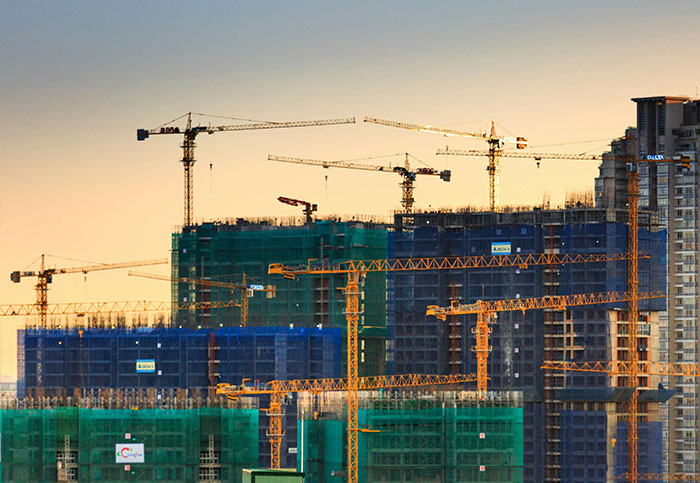 Much of it is a side-effect of what I refer to as 'capitalism gone bad'. Some decades ago, corporate America fully embraced a philosophy of 'profit above all else', and that meant any social conscience by large and far went out the window. If f*****g people over meant you made fat stacks of cash, then that was acceptable. How this relates to the subject of this post, is that a community center or skating rink doesn't make 'fat stacks of cash', they usually operate barely in the black at best, so if some corporation can buy up that property, and if necessary bribe some county officials to re-zone it, they'll do it, and put something in it's place that make the 'fat stacks of cash' they want -- and if that f***s over the local community, *tough s**t*. Someone complains they'll say "oh, well, we brought JOBS to the area!" and stand all tall and proud like they did a good thing.
I also personally believe there are elements of our own government that don't *want* people venturing outside their homes unless it's to go to work or to buy supplies, they'd rather people be corralled into their homes and *stay there* otherwise. Among these I speak of are police; if you haven't noticed they've become more and more the 'jackbooted thugs with badges and guns' that I sometimes speak of. It's fairly common throughout human history that police, left unchecked for too long, become a power unto themselves, not content to just enforce the law, but to become judge, jury -- and *executioner* -- all-in-one. They'd much prefer, I think, that everyone everywhere be *controlled* 24/7/365, and keeping people in their homes is one way to do that.
Much of it is a side-effect of what I refer to as 'capitalism gone bad'. Some decades ago, corporate America fully embraced a philosophy of 'profit above all else', and that meant any social conscience by large and far went out the window. If f*****g people over meant you made fat stacks of cash, then that was acceptable. How this relates to the subject of this post, is that a community center or skating rink doesn't make 'fat stacks of cash', they usually operate barely in the black at best, so if some corporation can buy up that property, and if necessary bribe some county officials to re-zone it, they'll do it, and put something in it's place that make the 'fat stacks of cash' they want -- and if that f***s over the local community, *tough s**t*. Someone complains they'll say "oh, well, we brought JOBS to the area!" and stand all tall and proud like they did a good thing.
I also personally believe there are elements of our own government that don't *want* people venturing outside their homes unless it's to go to work or to buy supplies, they'd rather people be corralled into their homes and *stay there* otherwise. Among these I speak of are police; if you haven't noticed they've become more and more the 'jackbooted thugs with badges and guns' that I sometimes speak of. It's fairly common throughout human history that police, left unchecked for too long, become a power unto themselves, not content to just enforce the law, but to become judge, jury -- and *executioner* -- all-in-one. They'd much prefer, I think, that everyone everywhere be *controlled* 24/7/365, and keeping people in their homes is one way to do that.
We can all thank Ronald Reagan for the beginning of the greed era and for Republicans since then making greed their mantra.
The good news is that a lot of third places still exist, and they can flourish only if they attract returning regulars. Therefore, seeking out local cafes, parks, arcades, libraries, malls, bars, clubs, bookstores, community events, and yard sales can help preserve them.
For those who aren’t sure how to find them, Dr. Lee recommends tying a third space to something they’re interested in. If reading is your cup of tea, try joining a local book club where you can discuss it with other people. In case you prefer nature over everything, going to a nearby park also counts.
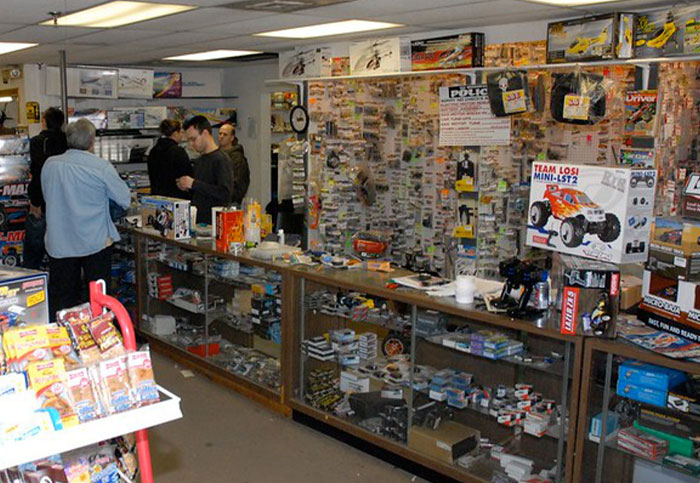 I grew up in a somewhat rural area. The only 3rd place I can think of was the hobby shop in the mall. We would play yugioh, magic, DND, ect, and just chill there all day. But once we started getting our own apartments / houses, we would mostly hang out there. That continues to this day, although we are a bit older.
I grew up in a somewhat rural area. The only 3rd place I can think of was the hobby shop in the mall. We would play yugioh, magic, DND, ect, and just chill there all day. But once we started getting our own apartments / houses, we would mostly hang out there. That continues to this day, although we are a bit older.
Not the one Amtrak is talking about, but the only roller skating rink I’ve been to in Philly is the Rothman Orthopedics Rink. It’s outdoors and converts to an ice rink in winter. I find it really funny that an Orthopedic center sponsors this rink considering how much business it must be generating for them (people falling and breaking something).
In a broad sense the idea of “community center” needs to be rethought because for decades it was and has been synonymous with “place for old people," not that this is not valid — it absolutely is, my MIL after her husband passed away craved those kinds of places — but it’s now something that more age groups want and need so we should think about how to design spaces that accommodate various age groups and interest groups. There’s also no reason that there couldn’t be commerce; what if in every other town there was a huge building with ample parking all around it, and inside there are all kinds of cool stores and restaurants?
Definitely not just for old people where I live (though the computer course and chair yoga is probably aimed at them). They do so many different programs like cooking, craft, men's shed, community garden, dungeons and dragons and boardgame groups which get people of all ages.
Your FLGS (Friendly Local Game Store) says hi. I can go to mine at any time, find 2-3 people I've gamed with, maybe sit down for a game of Magic on a random day, or bring a board game and play it, or go to scheduled mini war game nights. Also, record and music stores. They exist, and people just go to talk (and show off) Book stores. Even B&N is a social place in a lot of ways. My 16 yo and their friends just go and sit at Starbucks.
God bless all of the game shop owners. I go and play board games, miniature games, or card games once or twice a week free of charge. I make a point to make most of my gaming purchases there to support them but they allow plenty of younger kids a place to go free of charge.
My dad owned a guitar store for a few years. It acted as a bit of a 3rd place, people would come jam and they had group music lessons and stuff. But, unfortunately, they had to shut down because people weren't buying enough stuff.
This one's tricky: people want exactly the guitar THEY want, rightly so. There's minute variations on look that will appeal from one guitar to another, and no store, of course, can carry the amount of guitars listed all over the place online. Sure, you can't hear or play them, but over the last 10-15 years that doesn't matter to many people, because they are going to plug into a computer program that has every guitar sound, effect pedal, amplifier, and every combination in between to record straight to there laptop. At this point, I'm glad people are still interested in and keeping the guitar industry alive
You know why 3rd places are dead? Regulations, zoning, and lawyers killed them. You know that old pavilion, quarry, lake, field, etc. kids used to go to and hangout? Yeah now if a kid gets hurt on that property their family will sue and probably win, so none of that can happen anymore. Alright but that’s about safety and a good thing you say right? Okay what about little skate rinks? Literally same problem, and also now require substantial investment to even create because of heavy regulations that are expensive to implement. Sorry, but your skate rink has to have premium ADA compliant doors, bathrooms, handrails, etc. which will cost significantly more and may require significant remodeling to put in. This can’t be done anymore without a loan and a business plan. It can only be a side project for someone who is already quite wealthy. So now it’s a business that needs to make a profit and any chance of it being an affordable and fun place for young people to hang out goes out the window. We need to chill out about things and not sue each other over everything, so far chance of that.
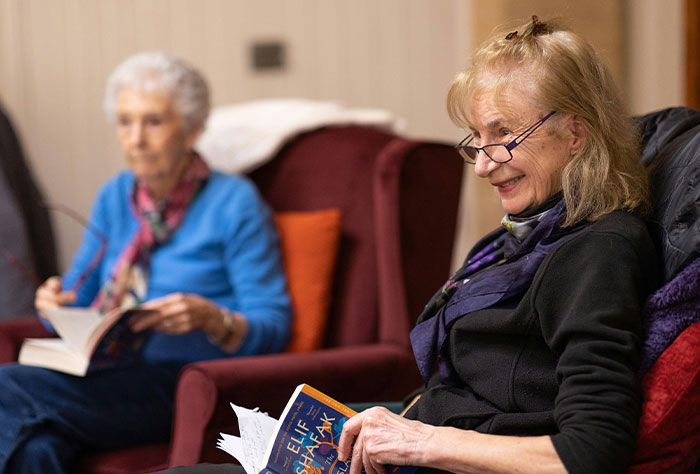 A lot more people were in clubs. Elks lodges, Masons, VFW, that sort of thing. Some had ties to other stuff like VFW, American Legion, Knights of Columbus... these still exist but not like they once did. Lots of people were in a club or two. Fancier clubs too, of course like the NY Athletic club; these offered places where members could hang out, play games, drink, eat, get fit, and even sleep. But there was a lot of hanging out at these places (not to mention country clubs and that sort of place which haven't gone away).
In the old old days, clubs turned into places where women got into political life, because they offered one of the few sanctuaries where they could express themselves.
A lot more people were in clubs. Elks lodges, Masons, VFW, that sort of thing. Some had ties to other stuff like VFW, American Legion, Knights of Columbus... these still exist but not like they once did. Lots of people were in a club or two. Fancier clubs too, of course like the NY Athletic club; these offered places where members could hang out, play games, drink, eat, get fit, and even sleep. But there was a lot of hanging out at these places (not to mention country clubs and that sort of place which haven't gone away).
In the old old days, clubs turned into places where women got into political life, because they offered one of the few sanctuaries where they could express themselves.
On close inspection those clubs just reinforced humans tribal tendencies which became racist, class conscious, and excluded anyone who did not share one's narrow beliefs or income status.
A teen center. When I was a teen we use to go there to socialize after school and play pool plus watch bands rehearse and talk to the community leaders that were there to manage everything.
A big part of this is lack of funding for psychiatric, d**g rehab and homeless services. Build a nice public "third place" and the homeless take it over. So then build all of the anti-homeless benches and other such b******t and it's no longer a nice public "third place".
The solution seems simple: care for the people who are in pain. Do something about those who are homeless, provide medical care for those who have psychiatric problems, aid those who are using substances to self-medicate. Care for the abandoned people. THEN when you build the nice third place spaces everyone can enjoy them. (BP - you're sensoring of perfectly acceptable words is draconian.)
I feel an issue with this as well is that due to the destruction of these places, people have moved from existing physically, to digitally. I am still a teenager, so I have a lot of experience with screen addiction, and just the internet in general, and because we don’t have places to hang out, video games and discord seervers become our places. There’s a negative feedback loop that is being created here, and it really scares me, ESPECIALLY with the new generation. I have a younger brother, he’s gen alpha, and man they are gonna be so messed up when they’re older. The way that he zones out whenever he’s on his phone, or the fact the at outside of a sport, he doesn’t have any hobbies besides video games. It feels like that every second he is home and isn’t playing games is just killing time until he can. I’m not saying video games should be removed, don’t get me wrong, I love them too, but they are very powerful substances.
 Skatepark, we used to hang there even if we weren’t really riding much
Skatepark, we used to hang there even if we weren’t really riding much
the skatepark near me was literally one small ramp and a rail. and it was always taken over by scooters or bikes. I gave up skateboarding as I wasn't confident enough to skate on the streets. the only over time I skated was in college when there was occasionally a bus that came by, lent out skateboards, and set out a bunch of ramps etc. but at that point I knew no tricks and could basically only ride :') I own a board still (because Welcome has some awesome designs and I couldn't resist) but it doesn't really get used xP
For your additional consideration, there are companies that now wish to turn even video games into a fulltime job, so they’re trying to take *that* away, too. Fun space is criminally undervalued.
it makes sense. theres a lot of economic value in video games, such as esports.
I know. I used to go to Fry's Electronics for denatured walks but alas, the internet k*lled Fry's.
Church used to be the main third place in American society where one could go for community without expecting to pay. And they largely still exist, but with increasing secularization people aren't going there either.
I'm Jewish/confused, I don't think I'd be very comfortable in a church. No, thank you, I do *not* want your evangelism. I am happy like this. And I don't want to make you feel uncomfortable either, so it's easier for me to not go.
I'm seeing this at the Walmart where I work: there have been more and more teenagers/young adults coming in and generally treating the place like a playground, terrorizing the other customers who shop there. I want to be mad at them, but above that, I understand that they literally have nowhere to go to blow off that steam. It's sad.
Heavy disagree with this, communal areas are being targeted in some cities but that’s in issue with those particular cities and not Society has whole. I go to caffès, parks, movies theaters, libraries and bars, all the time. The issue in my opinion isn’t that people have robbed of the places to have communities they’ve been robbed of the desire to join them. Alot of people now adays don’t have hobbies that aren’t just spending money on the next big media so if people don’t have these things they’ll just sit at home and watch til-tok.
if no one *wants* to go to the third places, then the people are just gonna redevelop them into something else. you are not allowed to then complain.
This is so funny, I live in Philly and have been engaging in ongoing talks about this exact subject with friends recently. There seems to be some disagreement in this thread and I'll agree to both sides having some important points. Is it true that third places are less numerous than they once were? Yes, absolutely. However, I'd say this is more of a problem in more suburban and rural areas than in cities like mine. And while third places are not as common and accessible as they once were, it is also true that there are more than this post would suggest. And as other commenters have noted, an important part of keeping these places open and thriving is continuing to visit them. There are technically two roller rinks, however both of them are off the Boulevard and are not as easily accessible to anyone who doesn't live in the northeast. There are, however, many ice rinks throughout the city. From the northeast to CC, and in both south and west. There are even a couple outdoor rinks that are open in the winter, but the rest are open year round. Third places can be so much more than skating rinks, though. Coffee shops and bars are classic examples, and there are tons across this city. Not everybody drinks, but there is a solid mocktail scene that's been developing over the years, and many bars offer more than just bevs. You can get food, you can play quizzo or pool, there are also activity bars like the multiples board game bars (examples: Queen & Rook, Thirsty Dice) and two locations for Barcade now (new one just opened in CC). Coffeeshops are also great for those who don't imbibe in alc, and there are a good amount (at least around me) that are open past 5. Chapterhouse and the many locations of Paris Baguette are all open til 8, and a few others nearby are open til 7. There are also many lovely libraries in the Free Library of Philadelphia network, and while the department's funding was slashed at the height of COVID, leading to an inaccessible schedule of Mon-Fri, 9-5, many locations have been expanding their hours into the evenings and weekends as of the last year. I won't go on into more detail about other options of third places, but I will list some more off the top of my head just as examples. Arcades Pool halls Independent book stores Breweries Bowling alleys Parks Skate parks Diners Local game stores And I will again say, that although we are fortunate to have many options here in Philly, it's not the case for everyone everywhere. And even here, there are less than there once were. Which means those that are left tend to get quite packed. But the best way to find a place where you can feel comfortable and at home, and gradually make yourself a regular, is to explore a bit and try new places. Eventually you're going to find some spots that you really like, if you keep at it. Some can cost money, but plenty of places don't, or they cost very little money. Please give it a shot, we all deserve to feel like we belong somewhere that isn't just at home or at work!
Yep, it's an issue in the UK too. There's a friend visiting the area this week, I was trying to think of somewhere to go to catch up and I just... couldn't think of anything.
Just came back from Japan and they have third places nailed down. Gonna miss it so much. Great food, great people, easy to go everywhere. Car culture sucks.
Even 'parks and libraries' are paid places. They're coming from tax allocations. Which, shocker, are getting hunted down and beaten behind the dumpsters. But, like, setting that aside, with global climate change, it's hard to use parks sometimes - when it's 110 degrees for 6 months straight, you can't really take the kids. And the increasingly _cheap_ indoor entertainment systems (games, computers, tablets, etc.) are a factor. Cafes aren't 'illegal', they're just expensive. You've got to have a full kitchen, seating, food permits, etc. The real estate alone is hard to swing on a cafe that breaks even at best for 5 years - better to slot it out and put in 2, or even 3, micro retail slots with no overhead. That's not zoning, that's inflation and interest rates. Co-located zoning (where you live on top of your cafe) might help a bit, but really not.
Unfortunately, city planners don’t see a happiness meter drop down until there’s riots. There’s just a sadness meter that keeps dropping with relatively few repercussions.
The loneliness epidemic isn't caused by the lack of skating-rinks, it's caused by the fact that people substitute human interaction for the internet and social media.
Skating-rinks didn't die out because of "capitalism", it's because no one wanted to go to them any more. People got bored of them and wanted to do other things. It's not the 1980s...
There's a s**t-ton of clubs, community groups, non-profit projects, and so on still around (particularly in big cities), but they're becoming less and less popular due to this substitution effect where people have this "alternative" method of gaining synthetic social interaction by using the internet.
Even the trains are radicalized now.
Places are shutting down BECAUSE no one goes there. In the past 50 years, the average house size had greatly increased, the average number of occupants has halved as people stopped having children, and the quality of entertainment you can have piped directly into said home has quintupled in value and quality. People would rather just stay at home and binge netflix or play video games than go out and do something. Add to that the middle class's general distain for poor people and you have them abandoning places en mass. OR the places that can attract the middle class raise their prices to the point to price out the poor people so the middle class will come.
Pricing at public events has become excessive. We just paid $8 for a frozen yogurt! Hot dogs are up to $10!
A few of the reasons people don't go to third places as much is because 1. times are hard right now for a lot of people. 2. A lot of people are used to being homebodies after lockdowns. 3. A lot of them closed down during covid. 4. Streaming services have become so prevalent that people don't even need theaters anymore.
As far as theaters go, I never cared for the experience. Sitting on broken seats, sticky floors from spilled drinks, having to miss ten minutes of the film to go to the restroom, the sub woofers being way to loud, rude people talking through the film. At home we have the comfortable furniture to lay on, can pause the film to go to the toilet or get some food. And we can adjust the volume to a comfortable level.
Virtual Reality is a big new third place for my entire friend group. Hanging out in VRChat, with actual vr headsets, learning how to make and modify avatars, playing games and going sightseeing through different worlds. While technically *at home* it doesnt feel like you're at home. It feels like you're there. Granted we spend a LOT on getting full body tracking/motion capture with some of our setups being in the range of 2k USD.
I really wish we had another roller rink in Austin. I love skating, but it's always standing-room-only with children's parties. :(.
I genuinely felt a huge shift in my mental state when I went from high school to college. From a suburban sprawl where all my friends lived too far away for me to ever just casually hang out, to a densely packed area of common spaces where I see friends everywhere I go and can hang out at any moment.
I agree with what others say about this post having some strange arguments but I agree with the overall idea. People need community and need spaces to meet and spend time with each other. Last year I started taking improv classes and it’s been incredible for my mental health. Improv students get to see the weekend shows for free so now I have a place I can go to weekly to spend time with the friends I’ve made in and out of classes. It’s certainly not a free option though. Still, having some place to go in the dead of winter to laugh for a few hours has been super super nice.
i disagree that people need community. its nice to have, but not nesseary to a healthy life.
This is why I walk so much. The streets are still inarguably free and public, as long as you keep moving.
Shout out to the podcast "better offline" - have a whole ranty ep about third places. i'm a home body absolutely but thinking about this concept lately has made me enjoy the places i *do* go to in a different way.
I really think this is one of the worst aspects of modern US culture. and people have been complaining abt this for the past like 50 years and it doesn’t look like it’s going to get any better any time soon. :(.
Chilling online isn't all that bad. In the past you would talk to like 50 different people per year. I talk to 50 people per day now.
•
Not Quite Done Yet!
Discover Your Competitive Edge
Subscribe Premium to Compare Your Stats with Others
More Premium features:
How did you score compared to others?
Your general stats:
| User | Result | Reward |
|---|---|---|
  | / 20 | |
  | / 20 | |

Social media was the final death blow of 3rd places. Who can relax in public when any mistake you make could be immortalized to the internet forever?
it doesnt even have to be a mistake. being a male of a certain age is enough to permanently label you as a creep.
Load More Replies...Covid killed our third space. There was a little diner/bar in Speedway, IN about 10 minutes from our home that was our place. Shelves lined with books, good food, boozy milkshakes, it was our place. If we didn't want to cook? Grindstone. Meeting friends for a quick chat? Grindstone. Want to hang out and play board games? Grindstone. Now it is gone and we don't have a place.
Because the lack of third places. And because there's a f*****g heatwave with 70% humidity here, but that's another story.
Load More Replies...Social media was the final death blow of 3rd places. Who can relax in public when any mistake you make could be immortalized to the internet forever?
it doesnt even have to be a mistake. being a male of a certain age is enough to permanently label you as a creep.
Load More Replies...Covid killed our third space. There was a little diner/bar in Speedway, IN about 10 minutes from our home that was our place. Shelves lined with books, good food, boozy milkshakes, it was our place. If we didn't want to cook? Grindstone. Meeting friends for a quick chat? Grindstone. Want to hang out and play board games? Grindstone. Now it is gone and we don't have a place.
Because the lack of third places. And because there's a f*****g heatwave with 70% humidity here, but that's another story.
Load More Replies...
 Dark Mode
Dark Mode 

 No fees, cancel anytime
No fees, cancel anytime 













































